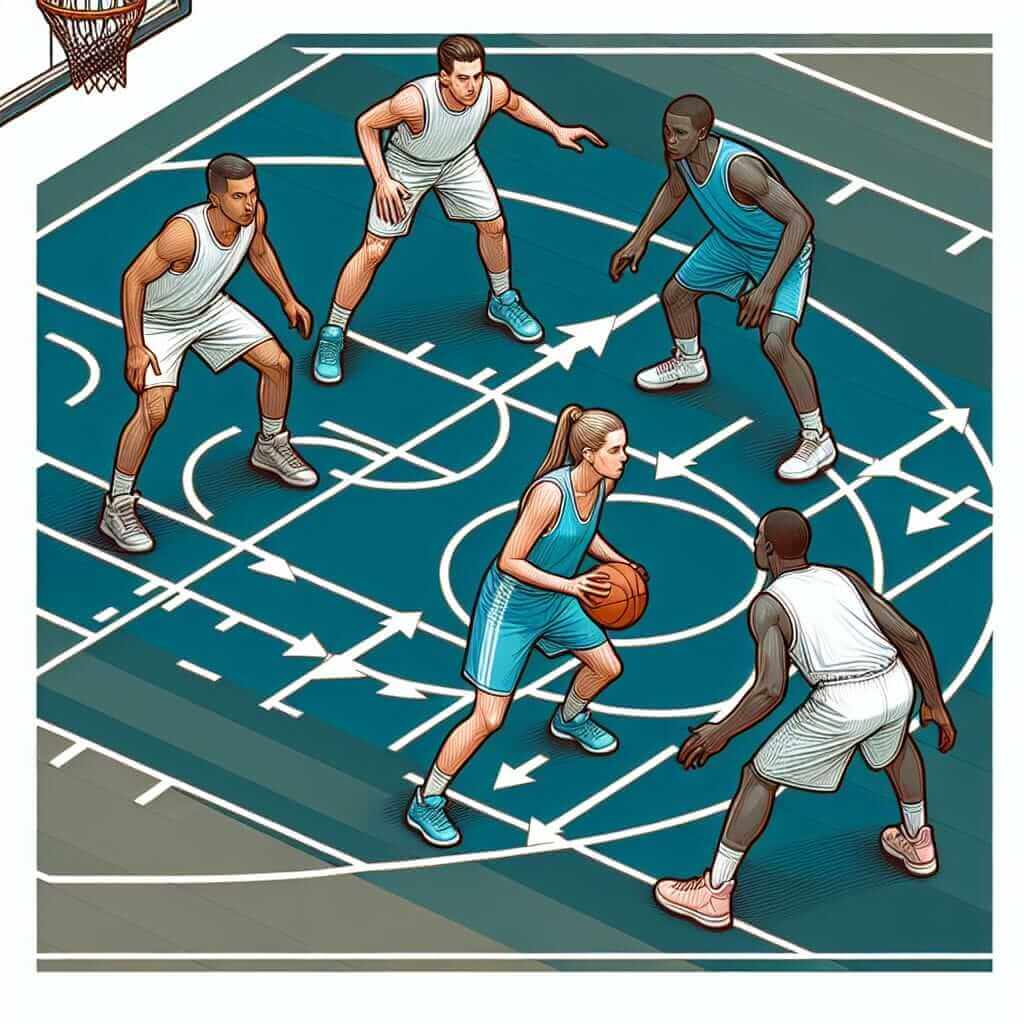As an IELTS instructor with over 20 years of experience, I often find students struggle to articulate their thoughts on specific topics, particularly in the speaking test. Basketball tactics, surprisingly enough, is one such area. While many students are familiar with the game, they lack the precise vocabulary and language skills to discuss its tactical nuances effectively. This article aims to equip you with the necessary tools to confidently describe different basketball tactics, boosting your IELTS vocabulary and fluency.
Understanding the Importance of Tactical Vocabulary
Being able to describe basketball tactics accurately is beneficial in various sections of the IELTS exam:
- Speaking: In Part 1, you might be asked about your hobbies, which could lead to a discussion about basketball. Part 3 often involves discussing more abstract aspects of sports, including strategy and teamwork.
- Listening: You might encounter listening passages about basketball games, coaching styles, or even historical changes in the sport.
- Writing: An essay task might require you to analyze the importance of teamwork in sports, using basketball as an example.
Breaking Down Basketball Tactics: Key Terms and Usage
Let’s delve into common basketball tactics and the vocabulary needed to describe them effectively:
Offense
- Fast Break: A quick offensive strategy executed immediately after gaining possession, aiming for a quick and easy basket.
- Example: “The point guard initiated a devastating fast break, leading to an uncontested layup.”
- Pick and Roll: A two-player maneuver where a player (usually a big man) sets a screen for the ball handler, creating a scoring opportunity.
- Example: “The team’s success relied heavily on the pick and roll play between their star point guard and center.”
- Isolation (Iso): A tactic where a player is isolated on one side of the court, forcing a one-on-one situation.
- Example: “The coach called an isolation play for their star player, hoping to capitalize on his individual skill.”
- Motion Offense: A fluid offensive strategy involving constant player movement, screens, and passing to create open shots.
- Example: “The team’s motion offense was difficult to defend, as their constant movement created confusion among the opposing team.”
Defense
- Zone Defense: A strategy where players guard specific areas of the court instead of individual opponents.
- Example: “The team employed a 2-3 zone defense to protect the paint and force outside shots.”
- Man-to-Man Defense: Each player guards a specific opponent, following their movements closely.
- Example: “Their aggressive man-to-man defense resulted in numerous turnovers and fast break opportunities.”
- Full-Court Press: An aggressive defensive tactic applied over the entire court, aiming to force turnovers.
- Example: “Trailing by a significant margin, the team implemented a full-court press in a desperate attempt to regain possession.”
- Double Team: Two defenders converge on a single offensive player, often the ball handler, to increase pressure and force a turnover.
- Example: “The opposing team’s star player was constantly met with a double team, limiting his impact on the game.”

Applying Tactical Vocabulary in IELTS
Speaking Example (Part 3):
Examiner: “Some people believe that individual talent is more important than teamwork in sports. What’s your opinion?”
Candidate: “While individual brilliance can be exciting, I believe teamwork is paramount in sports like basketball. For instance, a well-executed pick and roll play relies on perfect timing and coordination between two players, highlighting the importance of collaboration for success.”
Writing Example (Task 2):
Prompt: “Analyze the factors that contribute to a successful sports team.”
Extract: “Furthermore, a team’s tactical approach plays a crucial role. A well-drilled team, capable of seamlessly transitioning between man-to-man and zone defense, can effectively disrupt the opposition’s rhythm and gain a strategic advantage.”
Tips for Success:
- Expand your Vocabulary: Actively learn new basketball terminology. Watch games with an analytical eye, paying attention to commentators’ language.
- Practice Makes Perfect: Use these terms in practice conversations. Try describing game highlights or explaining strategies to a friend.
- Context is Key: Don’t just memorize words in isolation. Understand how to use them accurately within the context of a basketball game.
By mastering these vocabulary and language skills, you’ll be well-equipped to tackle any basketball-related topic in the IELTS exam with confidence and fluency.